- Home
- Mack Maloney
Strike Force Bravo Page 11
Strike Force Bravo Read online
Page 11
“We should be so lucky,” he said.
Chapter 9
The explosion went off just 10 feet from where Atlas was sleeping.
The concussion slammed him against the bars of his cage. A wave of flame and sparks washed over him. This was how he woke up—his head bleeding, the hair on his arms afire.
Still, the first thought that came to him was: How the hell did I ever fall asleep?
The horror he’d witnessed in the camp over the past few hours seemed to be enough to guarantee that he would never sleep again. The Aboos had executed three more people since the man with the beard was so cruelly murdered. His wife had been brought out next. She was too hysterical to go through the Aboos’ videotaped interrogation routine. They roughly put her head on the chopping block and decapitated her just minutes after she was taken from her box.
A younger man went next, this just as the sun had gone down and the terrorists had started drinking what appeared to be homemade beer. The Aboos tortured the young man—he looked Hawaiian—burning him with cigarette butts and candles and making him sing a song before they cut off his head. The Aboos then urinated on his body.
The fourth victim was taken at the height of the drunken rage. She was a young overweight teen, probably 15 or so. The terrorists tried to sexually assault her, but they were too intoxicated and she fought them to the end. They decapitated her, but because the executioner was drunk, it was messy and she went very badly. Her killing disgusted even the drunken terrorists, and the blood lust ended abruptly. In a way then, the poor girl saved Atlas’s life, as he was certain he would have been next.
Somewhere after that, exhausted and depleted of adrenaline, Atlas fell asleep.
It was the sound of one of the terrorists getting blown to pieces that had woke him up. It took him a few seconds to get his bearings. Then he saw that the guy who had been guarding his box was now lying in pieces on the ground right next to him. Strangely, Atlas thought the man had blown himself up with his own grenade. Atlas had seen him tossing it around the day before….
Blam! Blam! Blam!
Suddenly another terrorist fell next to Atlas’s cage. He was practically face-to-face with him. It was his other guard. The man had taken a bullet between the eyes, another in the mouth, another in the neck. Three bullets all in a line.
Tap shots…Atlas thought. Well aimed. Quick. Deadly.
That’s when it finally hit him: the terrorists’ camp was under attack.
Atlas tried to move away from the two ghastly bodies, but of course this was impossible inside his tiny cell. Another explosion went off right next to him. It lifted his box up a few inches before slamming it back down to the ground again, nearly crushing him. Then came more machine-gun fire. Rocket grenades were exploding all over. The camp’s guards had all been shot instantaneously. The rest of the Aboos were in their cots either asleep or still passed out. They were being riddled with bullets before their feet could hit the ground. More explosions, more heavy firing. An earsplitting scream shook the area. And what the hell was that going over his head?
Atlas had prayed to be rescued, prayed harder than he had ever prayed before. But never did he think the cavalry would arrive not knowing there were still hostages alive here. He was convinced he’d be killed right along with his tormentors. But then this thought was cut short by another explosion—the biggest one yet. It was so powerful it ripped the top off Atlas’s box. Suddenly he could see the trees and the vines overhead and even a few stars—things he’d thought he’d never see again. He tried to get up, tried to get out before someone came along and put the roof back on. But then came another blast. This one knocked the rest of the cage right over. Atlas landed facedown in the mud and the blood and the homemade beer. When he cleared the crap from his eyes, he saw a pair of boots in front of him. A heavily armed man in a black uniform was standing over him. He knew he was some kind of special operations soldier. Except he was very unkempt.
He roughly pulled Atlas to his feet kicking away the last remains of the cage. Atlas saw the strange patch on the man’s shoulder. The Stars and Stripes with the outline of the Twin Towers and the letters NYPD and FDNY on either side.
Atlas couldn’t help it. He had to ask the man: “Who the hell are you?”
“That’s a good question,” the soldier replied.
Explosions were still going off all over the camp. The sky was filled with flares, suspended in air, turning the night into weirdly twisting shadows. Atlas and his rescuer raced through the compound trying to avoid being hit by all the ordnance coming from just about every direction.
They ran by two more black-uniformed soldiers who were brutally beating one of the Aboos to death with their rifle butts. Atlas saw another terrorist get shot first in the nose, then twice in the neck. Two more were burned alive in their hut as the raiders threw incendiary grenades into its opening. It was bloody and shocking, even after what Atlas had seen the terrorists do to their hostages. There was no mercy here, no quarter given—and certainly no prisoners.
Again, the questions came to him: Who are these guys? Are they really Americans?
Suddenly the bullets stopped flying. The sky was empty and everything had gone dark again. Still on the tail of the man who had helped free him, Atlas tried to make some sense of the smoke and flames. The raiders had left one hut standing. It was the terrorists’ HQ, their commander’s hut. Atlas crowded inside with the rest of the rescue team. Each soldier seemed bigger than the next, and many were wearing the same stars-and-stripes-and-Twin-Towers patch as the guy who’d pulled him from his box. But others were clearly SEALs. And others seemed to belong to an army of male models. But at the same time they all seemed so unusual. So different….
They had the Aboo commander bound to his bamboo chair in the middle of the hut. His elaborate array of video paraphernalia had been smashed to pieces all around him. One man not wearing the stars-and-stripes patch was interrogating the terrorist commander, speaking to him in a combination of Portuguese, English, and Tagalog. Four other soldiers were standing right over him. Whenever the Aboo CO would refuse to answer or gave an answer they didn’t want to hear, he got a rifle butt across the face or a boot in the nuts. Atlas never thought he could feel bad for the Aboo CO. He’d seen the guy brutally murder four hostages in just one night and would have killed him as well, had it not been for this strangely divine intervention. But he felt a pang of grief for this man now, because the raiders were beating him so.
Atlas was on the verge of shock and disoriented from his own ordeal. And he didn’t speak Portuguese or the local Filipino tongue. But suddenly came one sentence in bits of English he could understand: the interrogator asked the terrorist leader where the cargo from the B-2 was. Atlas froze when he heard this. The cargo? Why was he asking about the cargo and not the B-2 itself? Strange as it was, what they’d been carrying in the belly of the beast was a very top secret. Yet these unusual rescuers knew about it—or at least the cracker asking the questions did. It was unclear if the rest of them even heard the question, so intent were they on beating the Aboo.
That’s when it dawned on Atlas: These soldiers weren’t so much here to rescue him and the other surviving hostages, as they were to recover what he’d been carrying inside the B-2.
This is very weird… he thought.
At that moment, he vowed not to tell anybody anything about what happened the night before, at least not until he had a chance to speak with his superiors.
The terrorist commander was white with fear by now. He could barely speak, his lips were so bloody. The soldiers brought in one of the CO’s underlings; he was the only other Aboo member left alive in the camp. Atlas recognized him as the guy who drove the execution truck. They put a gun in this man’s mouth and then made it clear to the Aboo CO that if he didn’t start answering their questions, he would suffer the same fate as was about to befall his hapless colleague. The soldiers then made the underling pull his own trigger. His skull exploded and he went over like a lead weight
.
The Aboo commander threw up all over himself. He was pleading with the raiders for mercy. In bits of English now, he went into detail about people coming to him with a plan to shoot something down, on a certain night and in a certain place, and saying that he and his men would be paid to provide men and guns for the operation, but that their involvement ended there. He knew nothing about any cargo. In between all this, the Aboo commander was asking the soldiers over and over: “How did you find me? We were supposed to be hidden….”
Suddenly one of the men wearing the strange stars-and-stripes patch got right in the terrorist’s face. “We smelled you, asshole!” he roared furiously before being led away.
Another man in a black uniform appeared and shoved a digital photo of someone in the Aboo CO’s face. Atlas caught a glimpse of the man in the photo. He was an Arab, in full turban and robe. He had a pop eye, bad skin, and terrible teeth.
“You know him?” the man was screaming at the Aboo CO. “Has he been here?”
The Aboo shook his head violently no, but Atlas thought he might be lying. He was beaten again, this time savagely about the face and stomach. He started crying and threw up again. He looked up at Atlas, as if he was the only sane one in the room—and maybe he was right. But Atlas turned his back on him. He was not in the business of helping murderers, even if it was at the hand of other, if friendlier, murderers.
This went on for what seemed like forever. The last Aboo was beaten to a pulp. Finally the terrorist uttered his last two words: “Dirty Arabs….” It was clear he was unable to say any more. The soldiers put a gun in his mouth a moment later. Someone pulled the trigger and his head was blown away.
Atlas felt all the energy drain out of him at that point. The raiders decided it was time to go. Atlas stumbled outside just ahead of them, looking about the camp. The place was in flames. Bodies were everywhere. Atlas was a jet pilot; he’d never been this close to combat. It was making him sick. One of the raiders asked him if he could walk. Atlas told him he’d crawl if it meant getting out of this place. The raiders and the rescued hostages began moving out. The three others freed were missionaries, like the ones Atlas had seen killed. They were Americans, and they were now in tears that they had been saved. Atlas had never seen their faces until now.
The rescuers were hustling them out of the camp faster than the hostages could walk. Atlas lingered behind for a moment, looking over the camp, looking over the dead. Each body was wearing black pajamas and a red bandanna—no one else had been killed. Each tiger cage had been overturned and was now empty. Everyone had been freed.
But this didn’t make sense.
If all the terrorists were dead and all the hostages had been released, then what the hell happened to Teddy Ballgame?
The American team made its way to a mountain called Wabala Tang.
It was located a mile east of the Aboos’ main camp, near the tip of Fuggu’s extended middle finger. It took the team about an hour to scale the 2,500-foot rise, the strongest of the Delta soldiers assisting the four surviving hostages. Wabala Tang’s flattened top would give the team a good vantage point. Plus, as the summit was thick with vegetation, they would have a place to rest and hide from the heat of the coming day.
It had been one crazy night. Weird, full of twists and turns. And very bloody. But they’d accomplished what they’d been sent here to do: They’d found the KC-10. They’d found the Aboos. And most important, they’d found the B-2—the prize they’d been told would get them back to America.
But now what?
The view from atop the mountain was spectacular. Dawn was coming and the waters of the Pacific off to the east looked jewel-like in the early light. A ferry was crossing the Bangtang Channel about a mile offshore. It was painted bright green, heading south, no doubt to Luzon, its passengers most probably unaware that a small war had just been fought overnight on this lost little island. Overhead, contrails of commercial airliners reflected the coming sunrise, their silver fuselages gleaming as the stars began fading away. It all seemed so peaceful.
Most of the team had retreated under the rubber trees. They would provide surprisingly cool shade and enough room for the hostages and the team members to stretch out. Those rescued feasted on MREs brought along by the assault team. Reconstituted spaghetti and meatballs, under the rising Filipino sun.
Ryder and Gallant sat out on the edge of the mountain’s cliff, awaiting the sunlight. They’d spent enough time in the dark, nearly a full month belowdecks of the Ocean Voyager after the events at Hormuz. They had to grab the rays anytime they could. When it came the warmth would feel good. And they could easily see the rest of the island from here. It looked like a paradise.
“Isn’t this the part where we meet some native girls and all get laid?” Gallant asked Ryder with a straight face.
“And then we all go back home again?” Ryder replied. “Yes, I think that’s coming right up.”
They relaxed and smoked cigarettes, buoyed by the knowledge that upon their keeping half of the bargain, Fox would now keep his and that they would indeed all be heading home very soon.
Wabala Tang overlooked another beach, and another inlet, farther up Fuggu’s short coastline. To their left, at the base of the next mountain over, was the terrorists’ main camp, still smoldering. To their right, the other mountain where the Aboos had been guarding the SAM launcher. In front of them, the river that had fed the lake where the B-2F went down and was so unusually hidden. Even now, with the ever-brightening sky, they could see the outline of the doomed bomber.
Fox had stationed himself atop a pile of rocks nearby, about fifty feet away from the two pilots. He hadn’t said anything to anybody since interrogating the Aboo commander. It was now about 0500 hours and the DSA officer was again whispering into his communicator. A few minutes later, Ryder and Gallant heard a somewhat familiar whooshing sound. Off to their right, a couple miles south of them, a Tomahawk missile was approaching, flying very low over the jungle. Ryder and Gallant watched the weapon streak by and explode directly above the remains of the Aboo main camp. The detonation was so bright and so symmetrical, it looked like a movie special effect. The camp had been in bad shape when the team left it. It was just a black scar on the side of the mountain now.
No sooner had the flames from this explosion dissipated than they heard Fox whispering into his phone again. Sure enough, a few moments later another Tomahawk arrived.
“There must be a sub laying offshore,” Gallant reasoned. “Judging by the time it takes for him to make the call and then for them to show up.”
Ryder touched fists with him. “Yeah, good guess,” he said.
The second Tomahawk streaked by, headed for the Aboos’ other mountain base, the place where the SAM had been launched. It plowed into the hilltop, exploding with such power, the resulting landslide buried the remains of the SAM camp forever. Two more Tommies showed up right on its tail. They were headed for the ghost beach where the spy bomber lay. They circled the area once, then peeled off and dived into the B-2.
One would have probably sufficed. A ton of high explosives tended to punch a pretty big hole in the ground. Two of them had the ability to create a small moonscape. Sure enough, when the flames and smoke lifted, Ryder and Gallant could see there was nothing left inside the impact area. No plant life. No water.
And of course, no sign remaining of the top-secret bomber.
An hour went by. Dawn came and the heat of the day arrived. The team stayed up on the summit, under the rubber trees, so cool and giving with their shade. Ryder and Gallant remained out on the ledge, though, smoking cigarettes. Everyone was waiting for Fox to tell them what to do next.
But the DSA officer had moved even farther away from them by now. In fact, he was standing on top of the highest rock at the highest point of the mountain. A very exposed position, but as it turned out, he was up there more as an antenna than an unintentional target.
Something was wrong. Fox had been trying to raise
somebody, anybody, on his UPX device ever since the last two Tomahawks creamed the B-2F. But strangely, none of his calls were going through. Or if they were, he was not getting any bounce-backs. It wasn’t a problem with the UPX; it was working fine. The problem was on the other end. Fox had been yapping into the device almost nonstop the whole night, keeping those listening informed on practically every step the team had made.
But now, ever since all the evidence of the small war had been wiped out by the Tomahawk missiles, no one was returning his calls.
Noon came and went.
The heat grew. Fox had still yet to hear from anyone and was getting increasingly agitated as the hours passed. A call to the two SDS men left with the Kai two miles down the coast confirmed that the airplane was all right, but that no orders or any messages at all had come through the flying boat’s communications suite. Everyone on top of the mountain thought that once they’d rested they’d simply march back down the beach to where the Kai lay hidden, get onboard, and take off. But Fox was still in charge. And while he was waiting for someone to contact him the others had no choice but to wait as well.
The DSA officer remained up on the high rocks, in the blistering heat, throughout the early afternoon. He was no longer standing, though, and he was no longer on the phone. He was just sitting up there and staring out at the water. He didn’t say anything to the pilots sitting nearby in all that time. In fact, the only person he’d talked to was the guy named Atlas, who they now knew had been the pilot of the B-2. Their conversation, held atop the burning summit, had been brief, sharp almost, with Atlas saying very little and answering most of Fox’s questions by emphatically shaking his head.
Ryder and Gallant stayed on the edge of the cliff, watching all this happen even as they were beginning to finally mind the heat. The afternoon wore on; the weather cooled. Fox stayed in place, though, his UPX maddeningly silent. Just as Ryder and Gallant were lighting up their last cigarettes, a very unexpected visitor came up behind them. He fell to the seat of his pants next to Ryder.

 Strike Force Bravo s-2
Strike Force Bravo s-2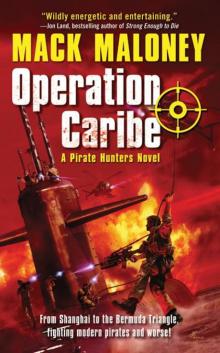 Operation Caribe ph-2
Operation Caribe ph-2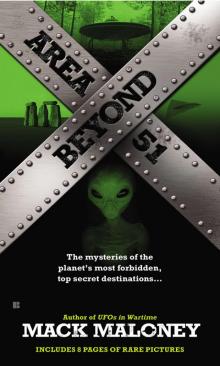 Beyond Area 51
Beyond Area 51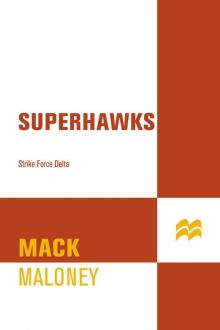 Strike Force Delta
Strike Force Delta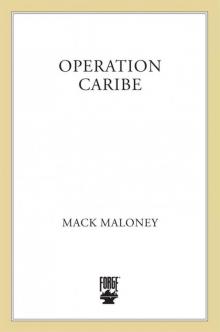 B00447820A EBOK
B00447820A EBOK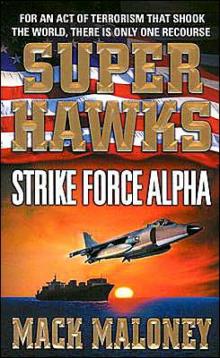 Strike Force Alpha
Strike Force Alpha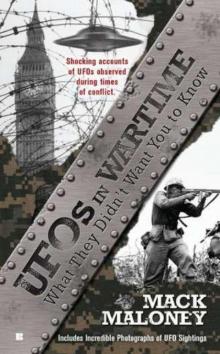 UFOs in Wartime: What They Didn't Want You To Know
UFOs in Wartime: What They Didn't Want You To Know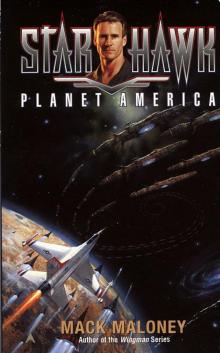 Planet America s-2
Planet America s-2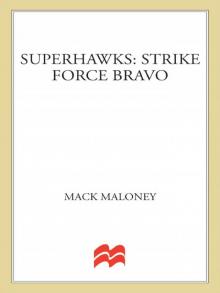 Strike Force Bravo
Strike Force Bravo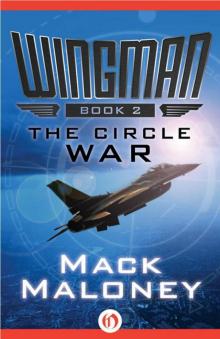 The Circle War w-2
The Circle War w-2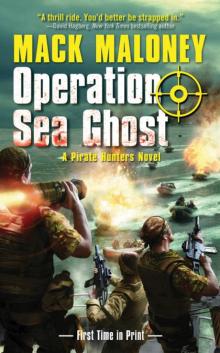 Operation Sea Ghost ph-3
Operation Sea Ghost ph-3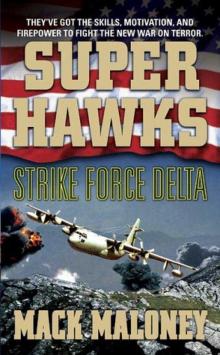 Strike Force Delta s-4
Strike Force Delta s-4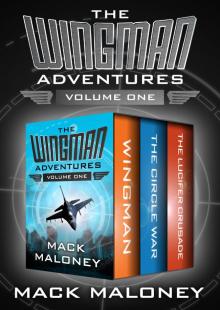 The Wingman Adventures Volume One
The Wingman Adventures Volume One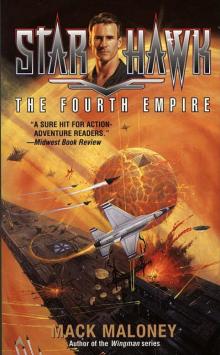 The Fourth Empire s-3
The Fourth Empire s-3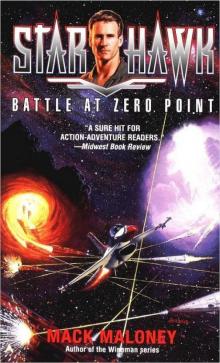 Battle at Zero Point s-4
Battle at Zero Point s-4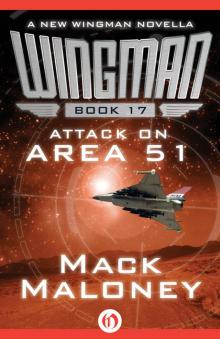 Attack on Area 51
Attack on Area 51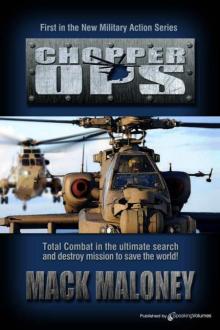 Chopper Ops
Chopper Ops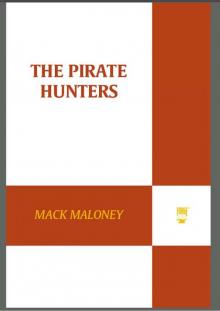 B003IKHEWG EBOK
B003IKHEWG EBOK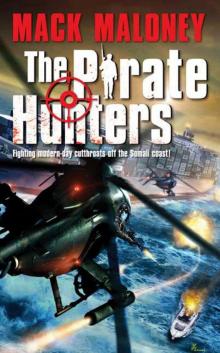 The Pirate Hunters ph-1
The Pirate Hunters ph-1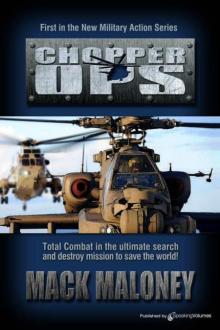 Chopper Ops co-1
Chopper Ops co-1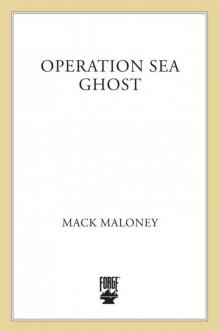 B005J4EW5G EBOK
B005J4EW5G EBOK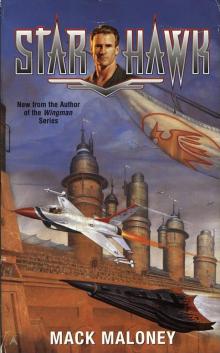 Starhawk s-1
Starhawk s-1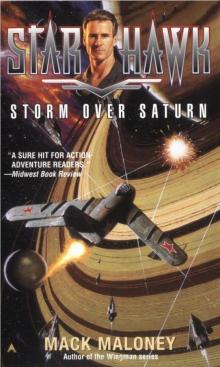 Storm Over Saturn s-5
Storm Over Saturn s-5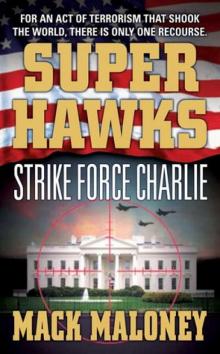 Strike Force Charlie s-3
Strike Force Charlie s-3